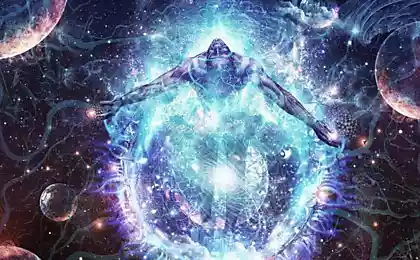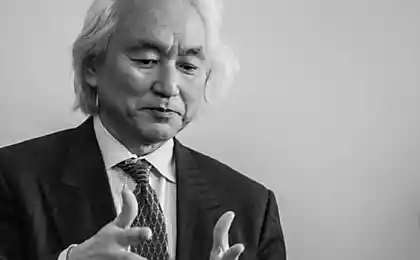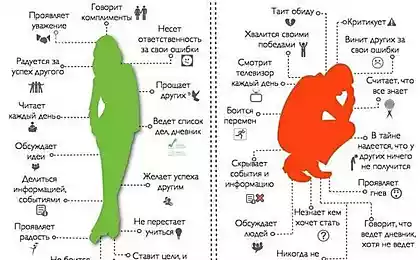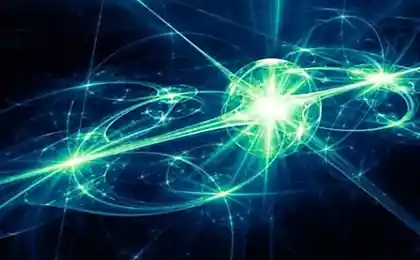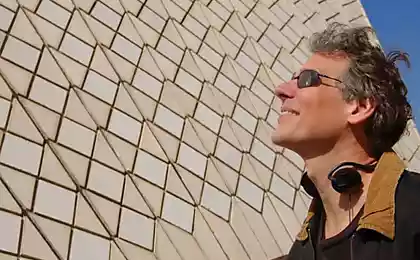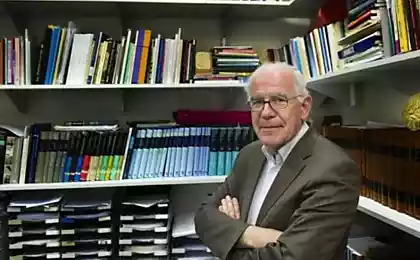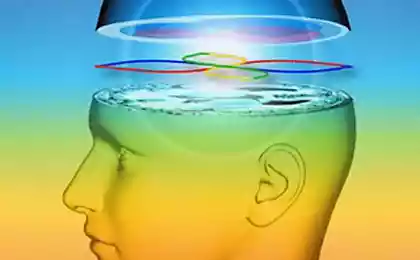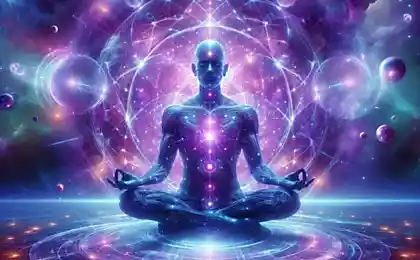542
The relocation of consciousness to the digital world
It is possible — but there are still a number of pressing issues that need to be discussed. Here are eight reasons why your brain will never be able to be digitized.
In fact, this is not just idle speculation. Many important thinkers supported the idea of such possibility, including the well-known futurist ray Kurzweil (Ray Kurzweil) (the author of the book “How to create a mind”), robotics expert Hans moravec (Hans Moravec), cognitive scientist Marvin Minsky (Marvin Minsky), neurologist David Illman (David Eagleman) and many others.
Skeptics, of course, welcome the opportunity to debunk those assertions. The idea that we will be able to download our consciousness into a computer, in the end, is quite extraordinary.
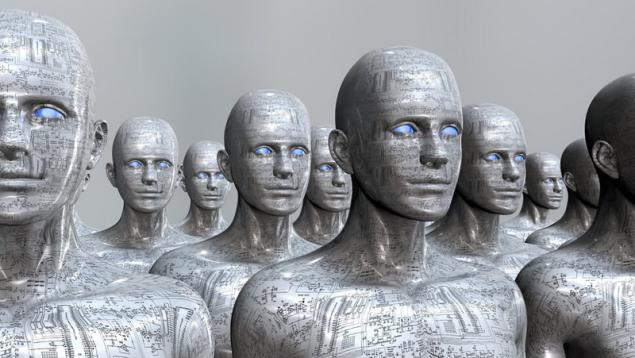
But many of the standard arguments, as a rule, the answer is no. Typical complaints relate to the lack of power, insufficient amount of space for storage, or fear that supercomputers will be slow, unstable and prone to catastrophic failures — concerns, which, of course, are not insurmountable, given the effect of Moore's law and the potential for large-scale calculations. Another popular objection is that consciousness cannot exist without a body. But loaded into the computer's mind can be endowed with a simulated body and placed in a simulated virtual world.
In fairness it is worth saying that there are a number of really scientific, philosophical, ethical problems and even problems in the field of security, which could significantly limit or even prevent consciousness in the long term.
Here are eight of the most serious problems:
Brain function is impossible to cheat
Supporters of the ability to download consciousness, as a rule, claim that the brain is the Turing machine — the idea that organic minds are nothing more than classical information processor. This assumption arose due to the strong physical thesis of Church-Turing, which is now fundamental to cognitive science.
But not everyone believes that the brain and the computer operate similarly. Speaking recently at the annual meeting of the American Association for the advancement of science (American Association for the Advancement of Science) in Boston, a neurobiologist Miguel Nicolelis (Miguel Nicolelis) said that "the brain is not computable and no engineering can reproduce." He said the idea of transferring one's consciousness is empty., claiming that this will never happen. According to him, "there are a lot of people promoting the idea that you can mimic the brain with a computer." Nicolelis argues that human consciousness cannot be replicated in silicon because most of its important features are the result of unpredictable, nonlinear interactions among billions of cells.
"You can't predict whether the quotations on the stock market to go up or down because you can't calculate everything," he said. "Even with the existing computer chips, you can't create consciousness."
We will never solve the hard problem of consciousness
Besides the problems with the computability of the brain, we will never be able to explain how and why we have the properties of sensory experience or what is called phenomenal experience.
According to David Chalmers — philosopher, exploring consciousness, who coined the term "hard problem" — we, most likely, will give you the answer to simple questions of human cognition, for example, as we focus our attention, remember the past, recognize the objects and process information. But to explain how incoming sensations is translated into subjective feelings such as perception of color, taste, or pleasant sounds of music, proving to be much harder. In addition, we are still not quite sure why we even have consciousness, and why we are not just "philosophical zombies" — hypothetical beings who act and react, as if deliberately, but do not possess the psyche.
In his article "the face of the problem of consciousness", Chalmers writes:
How can we explain why there is something that can create a mental image or to experience emotions? It is recognized that the experience occurs on a physical basis, but we have no good explanation for why and how this happens. Why physical processes lead to a rich inner life at all? It seems that such processes objectively shouldn't happen and yet they happen. If any problem qualifies as the problem of consciousness, Chalmers argues, it is she.
We will never solve the trouble of binding
And even if we figure out how the brain is formed by subjective experience, classical digital computers will never be able to support the virtual existence of the separately taken of the phenomenal mind. This is something that relates to the problem of linking (segregation and combination) is our inability to understand how the mind is able to separate elements and combine problems as easily as he does it. Needless to say, we don't even know whether a Turing machine can support these functions.
In particular, we still need to understand the process of how our brain separates the elements in complex models, to distinguish them as different objects. The problem of binding (the binding problem) is also connected with the question of how objects in the background or in our peripheral attention — or even something abstract as emotions — can be combined into a unified and consistent experience. As said neurologist Antti Revonsuo (Antti Revonsuo): "Binding, thus considered as a problem of finding mechanisms that link the "objective" physical entities of the external world with relevant internal neural properties in the brain."
He continues:
Once the concept of linking consciousness is established, it becomes immediately clear that it is closely connected with two main problems in the study of consciousness. The first concerns the unity of phenomenal consciousness. Part of phenomenal consciousness United in a single unit that contains a unified 'I" in the center of a unified sensory world, full of coherent objects. How should we describe and explain such empirical unity? The second problem concerns the correlation of the nervous system and consciousness. If we consider the explanation of the unity of consciousness by postulating the basic neural mechanisms, then the human consciousness is directly related to the activity of the cerebral cortex.
Nobody knows how our brain performs this trick — at least not yet — and will there ever be a digital computer capable of phenomenal binding.
Panpsychism real
Being a controversial idea, panpsychism has some potential. This view is that consciousness is a fundamental and enduring feature of the space. It may sound a bit in the spirit of the new age, but it's an idea which is steadily gaining strength (especially given our inability to solve a difficult task).
Panpsychist assume that all parts of matter connected with the mind. Neurologist Stuart Hameroff (Stuart Hameroff) have suggested that consciousness is related to fundamental components of physical reality components, which is akin to such phenomena as mass, spin or charge. According to this view, the basis of consciousness can be found in additional fundamental forces of nature, no different from gravity or electromagnetism. It is a sort of basic sensitivity or understanding. According to Hameroff, "these things just exist." In addition, David Chalmers (David Chalmers) have proposed a dual aspect theory in which information has both physical and experiential aspects. Panpsychism also attracted the attention of quantum physicists (who speculate about potential quantum aspects of consciousness given our presence in an Everett Universe), and physicalists such as Stroon Galen (Galen Strawson), who argues that the mental and the empirical is a physical phenomenon.
This is a problem of the mind due to the fact that consciousness may not be physical media — the Central assertions of the thesis of Church-Turing — but it really depends on the specific physical / material configurations. It is possible that there is no digital or algorithmic equivalent of consciousness. Consciousness arises in the classical von Neumann architecture, therefore, it can be as impossible as splitting an atom in a virtual environment using zeros and ones.
The reality of the dualism of mind and body
Perhaps even more controversial is the assumption that consciousness is located somewhere outside the brain, perhaps in some ethereal body or soul. This idea, which is primarily related to the ideas of Descartes, philosopher of the 17th century, who suggested that the mind is a nonphysical substance (in contrast to the material interpretation of mind and consciousness). Consequently, some proponents of dualism (or even vitalism) suggest that consciousness is outside of the realms of what can be known by science.
No need to say that if our mind is somewhere outside our bodies — like in some capacity, or oddly enough, in the simulation (e.g. the Matrix) — our chances of loading close to zero.
It would be unethical to develop
In addition to the philosophical and scientific problems can be some moral reason to refuse such a project. If we are going to develop the technology to download consciousness, we must conduct a series of invasive experiments, both in animals and in humans. While there are tremendous opportunities for abuse.
A boot scheme is usually described as a scanning and mapping of the human brain, or sequential partitioning. While the subject, whether mouse or monkey, may be placed under General anesthesia, he eventually needs to be resuscitated in the digital environment. Once that happens, we will likely appear on his inner, subjective world. This can lead to brain damage as a result of psychological or physical suffering. It would be reasonable to assume that our early attempts to upload will be far from perfect, and perhaps cruel.
And when the time comes to download the consciousness of the first man, there can be serious ethical and legal issues that need to be considered, especially given that we are talking about the transfer of the living, having the right creatures.
We can never be sure that this will work
This leads to the next problem — post-boot skepticism. Man can never be sure that has created a living replica of himself. This is a problem of continuity of consciousness we could never be absolutely sure that instead of moving our minds, we just created a digital copy of themselves.
Due to the fact that we can't measure consciousness, qualitatively or quantitatively, the download will require an unprecedented act of faith — confidence, which can lead to complete oblivion (e.g. a philosophical zombie), or to something completely unexpected. Besides, it is not possible to rely on the advice previously downloaded creatures ("Dive in, the water's warm ...").
Philosopher David Pearce put it this way:
Think of it as about the game of chess. If I tell you all the moves You can accurately repeat the game. But you do not know anything about the appearance of the figures, and indeed, whether they existed physically (I played online). In addition, I think the same can be said about the images of objects in consciousness. The possibility of the existence of consciousness without a material basis is to be distinguished from the properties of sensory experience (qualia) without a material carrier.
In other words, the quality of consciousness in the digital environment may be far from real consciousness.
Uploaded consciousness will be vulnerable to hacking and abuse. Once our consciousness will be uploaded, they will be physically and inextricably connected with a large computational superstructure. In consequence of which, the uploaded minds will be constantly vulnerable to malicious attacks and other unwanted intrusions. To avoid this, each uploaded person will have to configure a personal firewall to protect yourself from reprogramming, espionage, damage, operation, delete or copy without permission. These threats can come from other uploaded minds, artificial intelligence fraudulent, malicious scripts, or even the current government (for example, as a means to restore order and control).
Indeed, as we already too well know, even the most stringent security measures can't prevent the most sophisticated attacks; uploaded consciousness can never be sure of their safety. published
P. S. And remember, only by changing their consumption — together we change the world! ©
Source: vk.com/feed?w=wall-23611958_126752
In fact, this is not just idle speculation. Many important thinkers supported the idea of such possibility, including the well-known futurist ray Kurzweil (Ray Kurzweil) (the author of the book “How to create a mind”), robotics expert Hans moravec (Hans Moravec), cognitive scientist Marvin Minsky (Marvin Minsky), neurologist David Illman (David Eagleman) and many others.
Skeptics, of course, welcome the opportunity to debunk those assertions. The idea that we will be able to download our consciousness into a computer, in the end, is quite extraordinary.

But many of the standard arguments, as a rule, the answer is no. Typical complaints relate to the lack of power, insufficient amount of space for storage, or fear that supercomputers will be slow, unstable and prone to catastrophic failures — concerns, which, of course, are not insurmountable, given the effect of Moore's law and the potential for large-scale calculations. Another popular objection is that consciousness cannot exist without a body. But loaded into the computer's mind can be endowed with a simulated body and placed in a simulated virtual world.
In fairness it is worth saying that there are a number of really scientific, philosophical, ethical problems and even problems in the field of security, which could significantly limit or even prevent consciousness in the long term.
Here are eight of the most serious problems:
Brain function is impossible to cheat
Supporters of the ability to download consciousness, as a rule, claim that the brain is the Turing machine — the idea that organic minds are nothing more than classical information processor. This assumption arose due to the strong physical thesis of Church-Turing, which is now fundamental to cognitive science.
But not everyone believes that the brain and the computer operate similarly. Speaking recently at the annual meeting of the American Association for the advancement of science (American Association for the Advancement of Science) in Boston, a neurobiologist Miguel Nicolelis (Miguel Nicolelis) said that "the brain is not computable and no engineering can reproduce." He said the idea of transferring one's consciousness is empty., claiming that this will never happen. According to him, "there are a lot of people promoting the idea that you can mimic the brain with a computer." Nicolelis argues that human consciousness cannot be replicated in silicon because most of its important features are the result of unpredictable, nonlinear interactions among billions of cells.
"You can't predict whether the quotations on the stock market to go up or down because you can't calculate everything," he said. "Even with the existing computer chips, you can't create consciousness."
We will never solve the hard problem of consciousness
Besides the problems with the computability of the brain, we will never be able to explain how and why we have the properties of sensory experience or what is called phenomenal experience.
According to David Chalmers — philosopher, exploring consciousness, who coined the term "hard problem" — we, most likely, will give you the answer to simple questions of human cognition, for example, as we focus our attention, remember the past, recognize the objects and process information. But to explain how incoming sensations is translated into subjective feelings such as perception of color, taste, or pleasant sounds of music, proving to be much harder. In addition, we are still not quite sure why we even have consciousness, and why we are not just "philosophical zombies" — hypothetical beings who act and react, as if deliberately, but do not possess the psyche.
In his article "the face of the problem of consciousness", Chalmers writes:
How can we explain why there is something that can create a mental image or to experience emotions? It is recognized that the experience occurs on a physical basis, but we have no good explanation for why and how this happens. Why physical processes lead to a rich inner life at all? It seems that such processes objectively shouldn't happen and yet they happen. If any problem qualifies as the problem of consciousness, Chalmers argues, it is she.
We will never solve the trouble of binding
And even if we figure out how the brain is formed by subjective experience, classical digital computers will never be able to support the virtual existence of the separately taken of the phenomenal mind. This is something that relates to the problem of linking (segregation and combination) is our inability to understand how the mind is able to separate elements and combine problems as easily as he does it. Needless to say, we don't even know whether a Turing machine can support these functions.
In particular, we still need to understand the process of how our brain separates the elements in complex models, to distinguish them as different objects. The problem of binding (the binding problem) is also connected with the question of how objects in the background or in our peripheral attention — or even something abstract as emotions — can be combined into a unified and consistent experience. As said neurologist Antti Revonsuo (Antti Revonsuo): "Binding, thus considered as a problem of finding mechanisms that link the "objective" physical entities of the external world with relevant internal neural properties in the brain."
He continues:
Once the concept of linking consciousness is established, it becomes immediately clear that it is closely connected with two main problems in the study of consciousness. The first concerns the unity of phenomenal consciousness. Part of phenomenal consciousness United in a single unit that contains a unified 'I" in the center of a unified sensory world, full of coherent objects. How should we describe and explain such empirical unity? The second problem concerns the correlation of the nervous system and consciousness. If we consider the explanation of the unity of consciousness by postulating the basic neural mechanisms, then the human consciousness is directly related to the activity of the cerebral cortex.
Nobody knows how our brain performs this trick — at least not yet — and will there ever be a digital computer capable of phenomenal binding.
Panpsychism real
Being a controversial idea, panpsychism has some potential. This view is that consciousness is a fundamental and enduring feature of the space. It may sound a bit in the spirit of the new age, but it's an idea which is steadily gaining strength (especially given our inability to solve a difficult task).
Panpsychist assume that all parts of matter connected with the mind. Neurologist Stuart Hameroff (Stuart Hameroff) have suggested that consciousness is related to fundamental components of physical reality components, which is akin to such phenomena as mass, spin or charge. According to this view, the basis of consciousness can be found in additional fundamental forces of nature, no different from gravity or electromagnetism. It is a sort of basic sensitivity or understanding. According to Hameroff, "these things just exist." In addition, David Chalmers (David Chalmers) have proposed a dual aspect theory in which information has both physical and experiential aspects. Panpsychism also attracted the attention of quantum physicists (who speculate about potential quantum aspects of consciousness given our presence in an Everett Universe), and physicalists such as Stroon Galen (Galen Strawson), who argues that the mental and the empirical is a physical phenomenon.
This is a problem of the mind due to the fact that consciousness may not be physical media — the Central assertions of the thesis of Church-Turing — but it really depends on the specific physical / material configurations. It is possible that there is no digital or algorithmic equivalent of consciousness. Consciousness arises in the classical von Neumann architecture, therefore, it can be as impossible as splitting an atom in a virtual environment using zeros and ones.
The reality of the dualism of mind and body
Perhaps even more controversial is the assumption that consciousness is located somewhere outside the brain, perhaps in some ethereal body or soul. This idea, which is primarily related to the ideas of Descartes, philosopher of the 17th century, who suggested that the mind is a nonphysical substance (in contrast to the material interpretation of mind and consciousness). Consequently, some proponents of dualism (or even vitalism) suggest that consciousness is outside of the realms of what can be known by science.
No need to say that if our mind is somewhere outside our bodies — like in some capacity, or oddly enough, in the simulation (e.g. the Matrix) — our chances of loading close to zero.
It would be unethical to develop
In addition to the philosophical and scientific problems can be some moral reason to refuse such a project. If we are going to develop the technology to download consciousness, we must conduct a series of invasive experiments, both in animals and in humans. While there are tremendous opportunities for abuse.
A boot scheme is usually described as a scanning and mapping of the human brain, or sequential partitioning. While the subject, whether mouse or monkey, may be placed under General anesthesia, he eventually needs to be resuscitated in the digital environment. Once that happens, we will likely appear on his inner, subjective world. This can lead to brain damage as a result of psychological or physical suffering. It would be reasonable to assume that our early attempts to upload will be far from perfect, and perhaps cruel.
And when the time comes to download the consciousness of the first man, there can be serious ethical and legal issues that need to be considered, especially given that we are talking about the transfer of the living, having the right creatures.
We can never be sure that this will work
This leads to the next problem — post-boot skepticism. Man can never be sure that has created a living replica of himself. This is a problem of continuity of consciousness we could never be absolutely sure that instead of moving our minds, we just created a digital copy of themselves.
Due to the fact that we can't measure consciousness, qualitatively or quantitatively, the download will require an unprecedented act of faith — confidence, which can lead to complete oblivion (e.g. a philosophical zombie), or to something completely unexpected. Besides, it is not possible to rely on the advice previously downloaded creatures ("Dive in, the water's warm ...").
Philosopher David Pearce put it this way:
Think of it as about the game of chess. If I tell you all the moves You can accurately repeat the game. But you do not know anything about the appearance of the figures, and indeed, whether they existed physically (I played online). In addition, I think the same can be said about the images of objects in consciousness. The possibility of the existence of consciousness without a material basis is to be distinguished from the properties of sensory experience (qualia) without a material carrier.
In other words, the quality of consciousness in the digital environment may be far from real consciousness.
Uploaded consciousness will be vulnerable to hacking and abuse. Once our consciousness will be uploaded, they will be physically and inextricably connected with a large computational superstructure. In consequence of which, the uploaded minds will be constantly vulnerable to malicious attacks and other unwanted intrusions. To avoid this, each uploaded person will have to configure a personal firewall to protect yourself from reprogramming, espionage, damage, operation, delete or copy without permission. These threats can come from other uploaded minds, artificial intelligence fraudulent, malicious scripts, or even the current government (for example, as a means to restore order and control).
Indeed, as we already too well know, even the most stringent security measures can't prevent the most sophisticated attacks; uploaded consciousness can never be sure of their safety. published
P. S. And remember, only by changing their consumption — together we change the world! ©
Source: vk.com/feed?w=wall-23611958_126752


